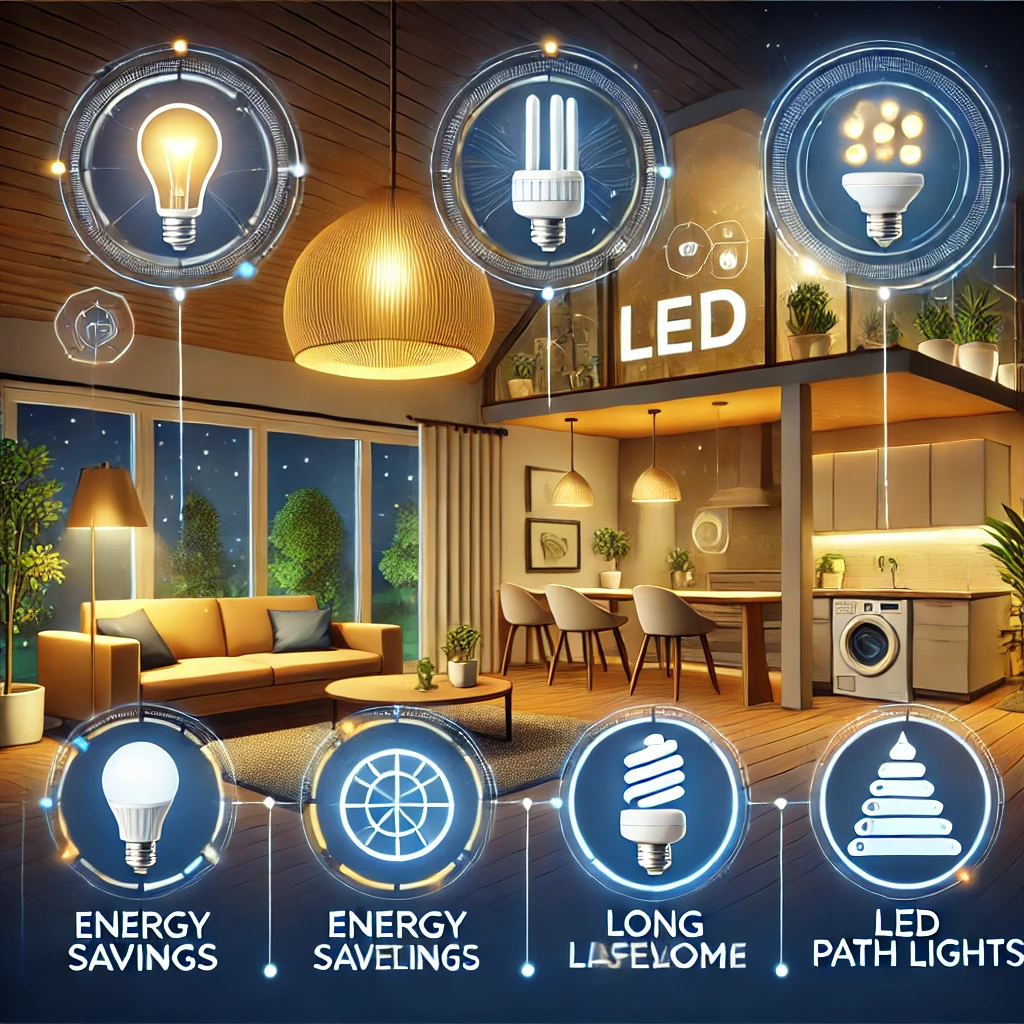
LED lighting has become a game-changer in the world of lighting solutions, offering efficiency, longevity, and a lower environmental impact. As more people consider switching to LEDs, common questions arise. Here, we answer the most frequently asked questions about LEDs to help you make an informed choice.
LEDs (Light Emitting Diodes) are semiconductor devices that emit light when an electrical current passes through them. Unlike traditional bulbs, LEDs don’t rely on filaments, making them much more efficient and longer-lasting. They are ideal for everything from residential to commercial lighting due to their low power consumption and high energy efficiency.
LEDs use up to 80% less energy than traditional incandescent bulbs, primarily because they generate less heat. This energy efficiency translates into lower electricity bills and a smaller carbon footprint, making LED lighting a top choice for eco-conscious consumers and businesses.
The lifespan of an LED can reach 25,000 to 50,000 hours, vastly outlasting incandescent and fluorescent bulbs. With proper use, LEDs can last up to 10-15 years, depending on the hours of usage and the quality of the LED fixture.
Yes, LEDs are safe for home use. Unlike compact fluorescent lamps (CFLs), LEDs contain no hazardous materials, such as mercury. Additionally, LEDs emit very little UV radiation and have reduced heat output, lowering the risk of burns or fire hazards.
Color temperature in LEDs refers to the appearance of light, ranging from warm (yellowish) to cool (bluish). Measured in Kelvin (K), lower values (2700K-3000K) provide warm, cozy light, ideal for living rooms and bedrooms, while higher values (5000K-6500K) create cooler light, suitable for task lighting in offices or workspaces.
Not all LEDs are compatible with dimmers. If you need dimmable LED lighting, look for products explicitly marked as “dimmable” and ensure your dimmer switch is compatible with LED technology. Using the wrong dimmer can lead to flickering and reduced lifespan of the LED.
Though initially more expensive, LEDs save money in the long run by reducing energy consumption and replacement costs. Their extended lifespan and energy savings make LEDs a valuable investment for homeowners and businesses alike.
Yes, many LED lights are designed specifically for outdoor use. These outdoor LEDs are built to withstand weather conditions and are ideal for security lighting, garden lights, and street lights. Make sure to check the rating to confirm that the LED light is suited for outdoor environments.
LEDs contribute to sustainability by reducing energy use, lowering greenhouse gas emissions, and reducing waste due to their long lifespan. They’re a cornerstone of eco-friendly lighting solutions, ideal for green building certifications and sustainable design.